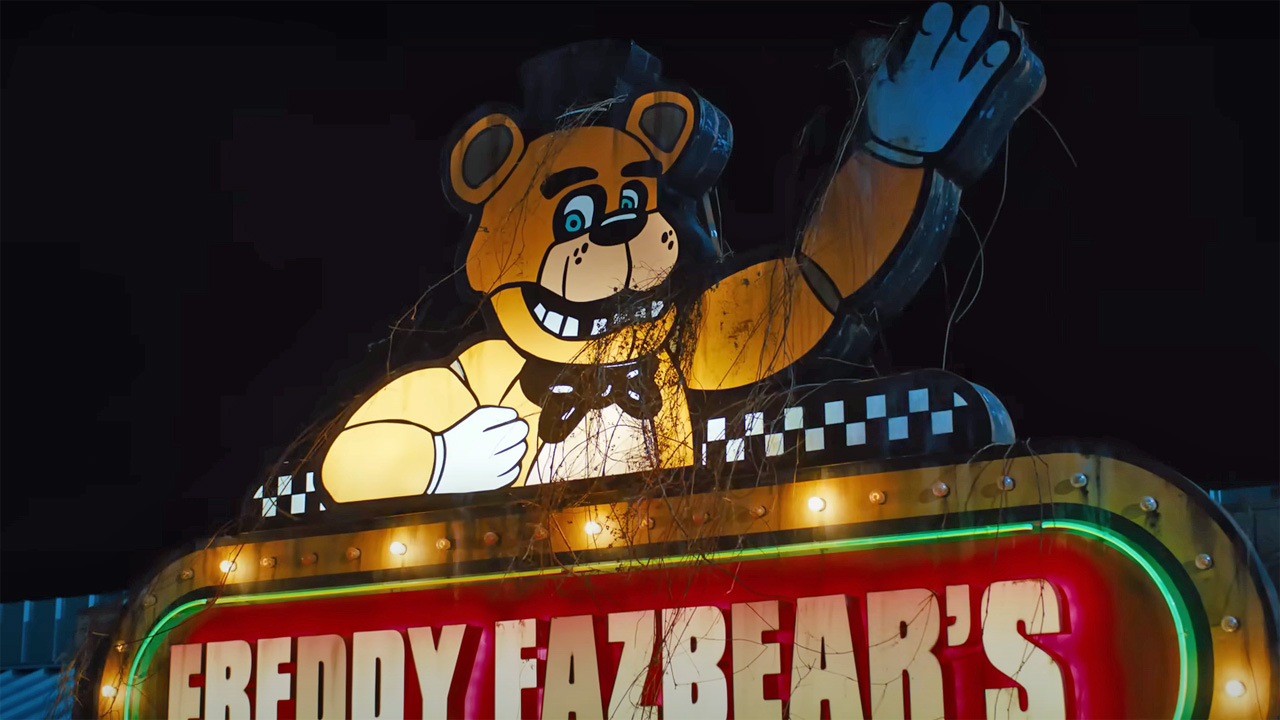Five Nights at Freddy’s wild success might mean more movies hit streaming and theaters the same day
FNAF's success suggests that we can have our convenient home streaming cake and eat it too

Sign up for breaking news, reviews, opinion, top tech deals, and more.
You are now subscribed
Your newsletter sign-up was successful
Five Nights At Freddy's, the film of the popular gaming franchise, could have an impact beyond giving audiences some good scares. The film was released to streaming on Peacock at the same time as it premiered in movie theaters, and that doesn't appear to have damaged its box office at all: according to Blumhouse boss Jason Blum, who posted on X, "FNAF is the BIGGEST Blumhouse film of ALL-TIME". It's also Peacock's biggest ever launch.
Not bad for a movie with a reportedly titchy $20m budget. Variety says it shattered multiple box office records on its opening weekend, making "a killing in its box office debut with $80 million in North America and $132 million globally." According to Boxoffice Pro chief analyst Shawn Robbins, "every studio should be taking note." Maybe we don't have to choose between movies coming to streaming only, or being exclusively at theaters for months.
Maybe.
Can other genres learn lessons from FNAF?
It's important to look at the wider picture here, because FNAF isn't like other movies: it's an adaptation of a very popular gaming franchise, and that franchise skews young. My kids know all the lore and all the characters even though they're both too young to see your average horror film. FNAF's PG-13 rating meant it was accessible to a ready-made audience of kids like mine who've grown up playing the games. And that demographic makes for a largely critic-proof film. The reviews on Rotten Tomatoes are largely terrible, and while its current 30% is better than last week's 25%, it's still a really low score. For more mainstream films, such a low score would be box office poison.
It's also worth noting that Peacock is less of a threat to the film's box office because it's a relatively small player: Peacock isn't publishing viewing figures but it's a safe bet that FNAF streamed to far fewer people than if it were on Netflix or Disney Plus.
The other important factor is that this is a horror film, albeit a PG-13 one, showing over Halloween: going to see a scary movie on Halloween is a social event as much as a movie one, and you could argue that teens will go and watch pretty much anything over that weekend provided it's suitably stabby or slashy. My eldest went to see it with their friends and didn't really rate the movie very much, but had a fantastic time hanging out with their pals – and that was their expectation going in. I don't think many people would approach, say, Killers of the Flower Moon in the same way.
That means we have to be cautious in jumping to conclusions about the whole industry here: in much the same way that the success of Taylor Swift's Eras tour film doesn't necessarily mean that an Insane Clown Posse concert movie would also make megabucks, FNAF is a very specific kind of film for a very specific demographic.
Sign up for breaking news, reviews, opinion, top tech deals, and more.
And that means that what FNAF demonstrates isn't that streaming and cinematic releases can always co-exist happily, but that in the right circumstances with the right movie and the right demographic the two kinds of release can complement one another. Horror isn't the only kind of movie that benefits from the group experience – maybe certain thrillers and comedies should look at the same approach.
As with so much of movie marketing, so much of it is about having the right movie in the right places at the right time. But at least FNAF proved it can be done, and may mean a bit more flexibility in the future.
You might also like

Contributor
Writer, broadcaster, musician and kitchen gadget obsessive Carrie Marshall has been writing about tech since 1998, contributing sage advice and odd opinions to all kinds of magazines and websites as well as writing more than twenty books. Her latest, a love letter to music titled Small Town Joy, is on sale now. She is the singer in spectacularly obscure Glaswegian rock band Unquiet Mind.